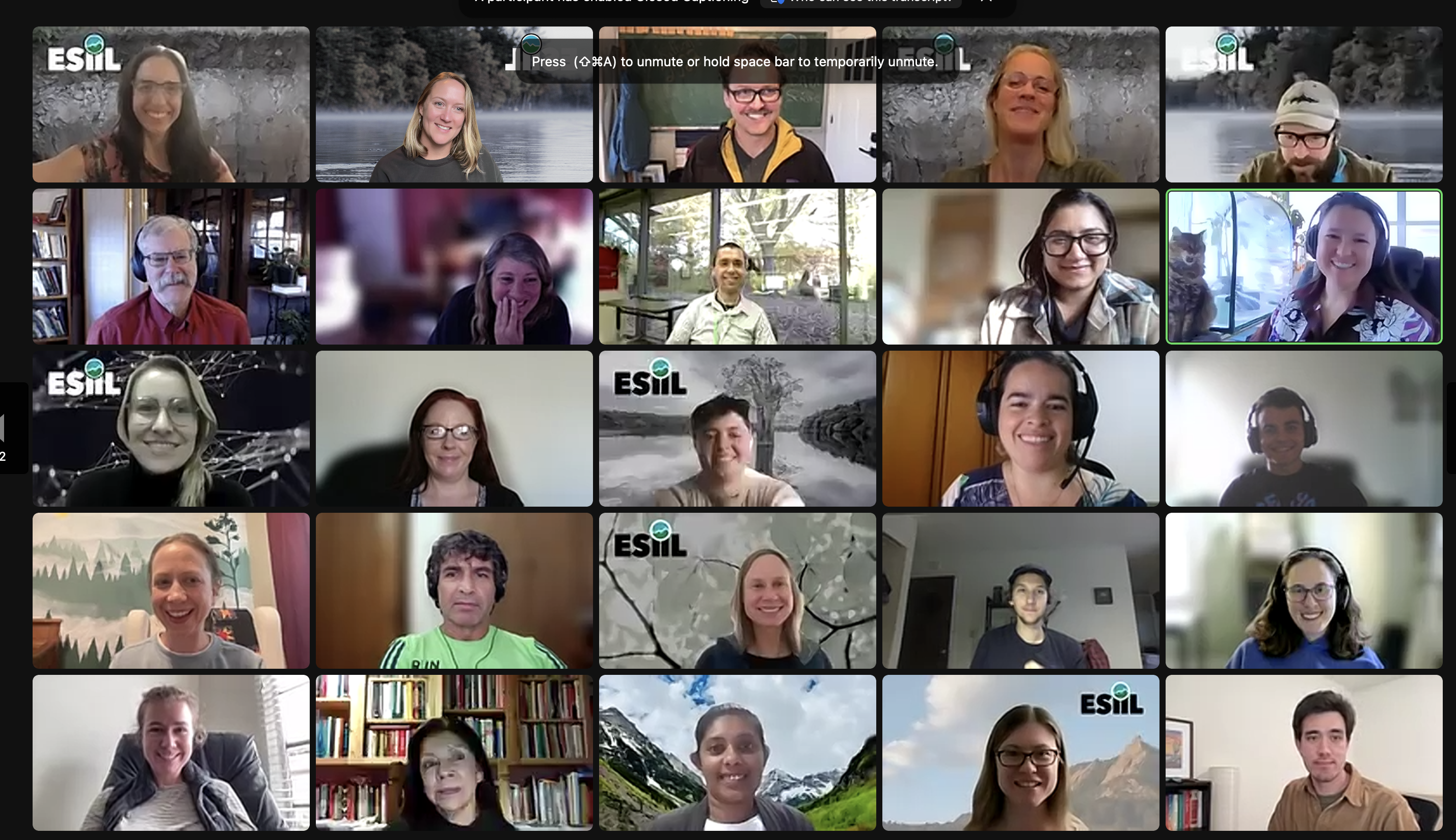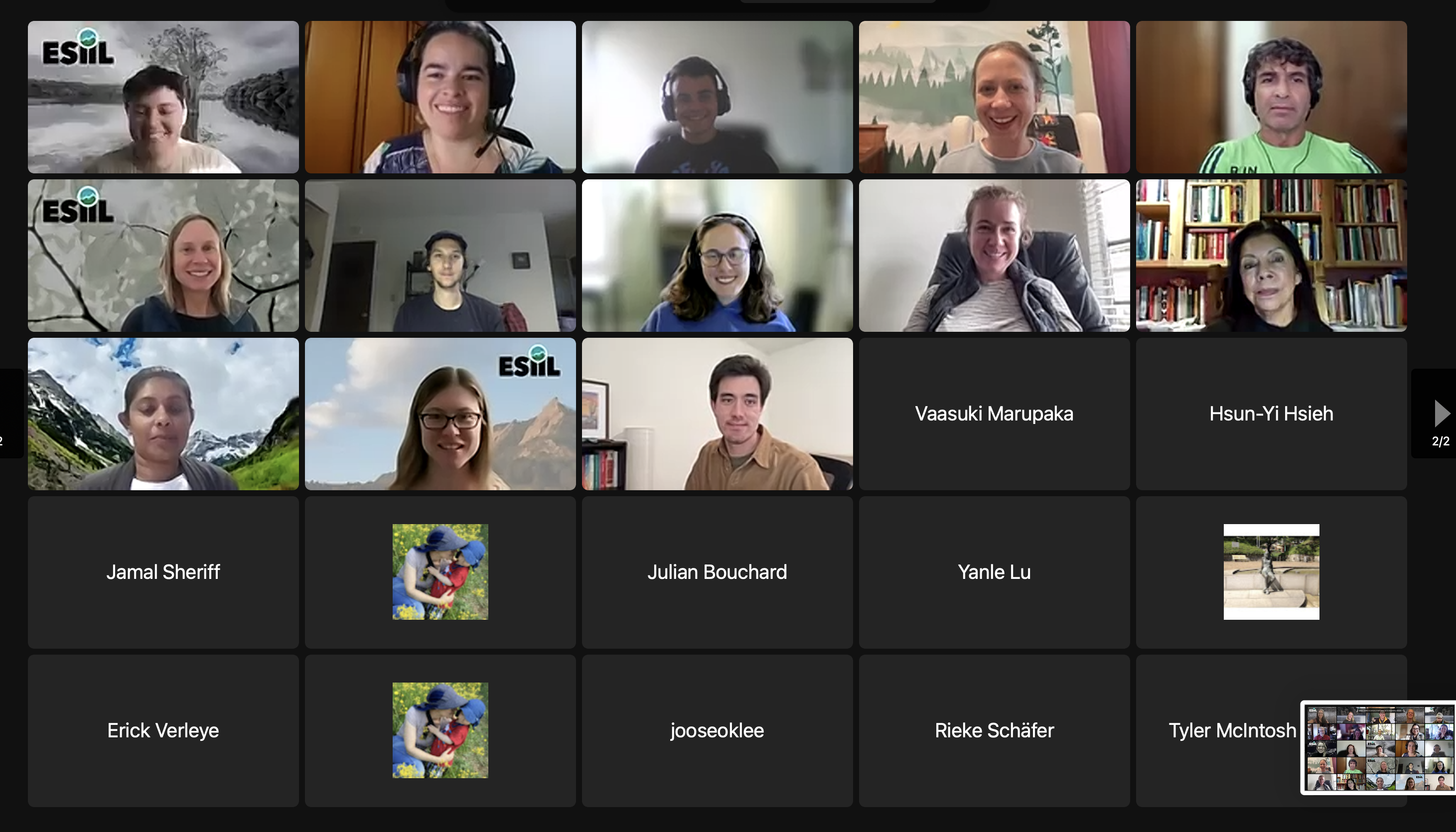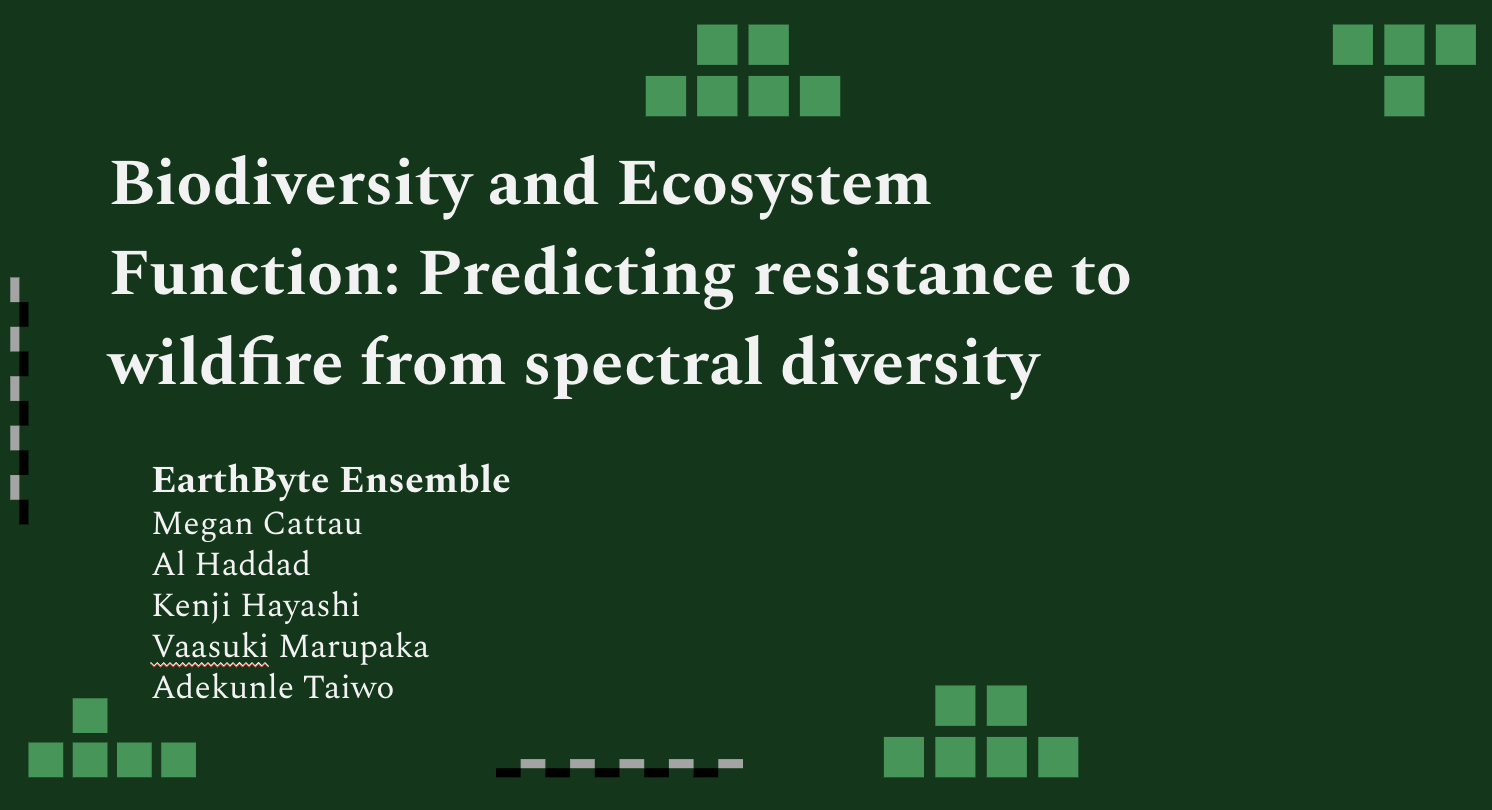Virtual Hackathon
Virtual Hackathon
Environmental MosAIc
Thank you and congratulations to all of our Environmental MosAIc participants! On November 15th, 2023 over thirty participants logged on from around the world and formed six diverse teams. In just two days these strangers became collaborative teams exploring data libraries, proposing scientific questions framed as AI problems, and developing proposals. Along the way, ESIIL provided mentors, a data library with environmental data, cyberinfrastructure, and technical support. On day three, teams presented their proposals to a panel of experts from the National Science Foundation (NSF), North Central Climate Adaptation Science Center (NC CASC), academics, and other community partners.
Read more about Environmental MosAIc in CIRES news: https://cires.colorado.edu/news/esiil-hosts-global-virtual-hackathon-environmental-mosaic.


Team Presentations
Want to see the presentations for yourself? Check out the links below!
- Team A: Biodiversity and ecosystem function: Predicting resistance to wildfire from spectral diversity
- Team B: How do natural hazards affect measures of community, cultural and biological diversity
- Team C: The impacts of droughts in Amazon watershed: and AI approach
- Team D: Community Water: Critical water data, monitoring, prediction & alerts for everyone
- Team E: Predicting future wildfires and what climatic conditions promote ecological regeneration post fire
- Team F: Connecting disparate measures of diversity (remote sense and citizen science data)
And the winner of the hackathon is…
Team A! Congratulations to Adekunle Taiwo, Megan Cattau, Vaasuki Marupaka, Al Haddad, and Kenji Hayashi. This team was chosen by our panel of judges for their proposal, “Biodiversity and ecosystem function: Predicting resistance to wildfire from spectral diversity” and will receive a financial award to meet one time in person in Boulder, CO (via ESIIL’s working groups) as well as cyberinfrastructure, and technical and scientific support to complete their project.

Hackathon’s Objectives:
- Promote scientific innovation
- Establish new collaborations across disciplines and sectors to promote community building and knowledge exchange
- Provide training on Environmental Data Science and Artificial Intelligence, and encourage discussions on issues related to data objectivity and sovereignty as well as best practices for responsible use of AI-generated data and models.
- Create purposeful playtime for exploration and evaluation of the environmental data cube curated by ESIIL.
- Facilitate the use of ESIIL’s cyberinfrastructure
Important Resources
- Pre-hackathon Trainings
- Official Rules
- Participant Agreement
- Guidelines for Intellectual Contributions and Credit
- Evaluation Criteria
Training Opportunities:
Please visit our pre-hackathon training website for videos, transcripts, and resources for each of our virtual training sessions.
This Hackathon is funded by the National Science Foundation (via award # DBI-2153040), and subject to the NSF’s terms and conditions.